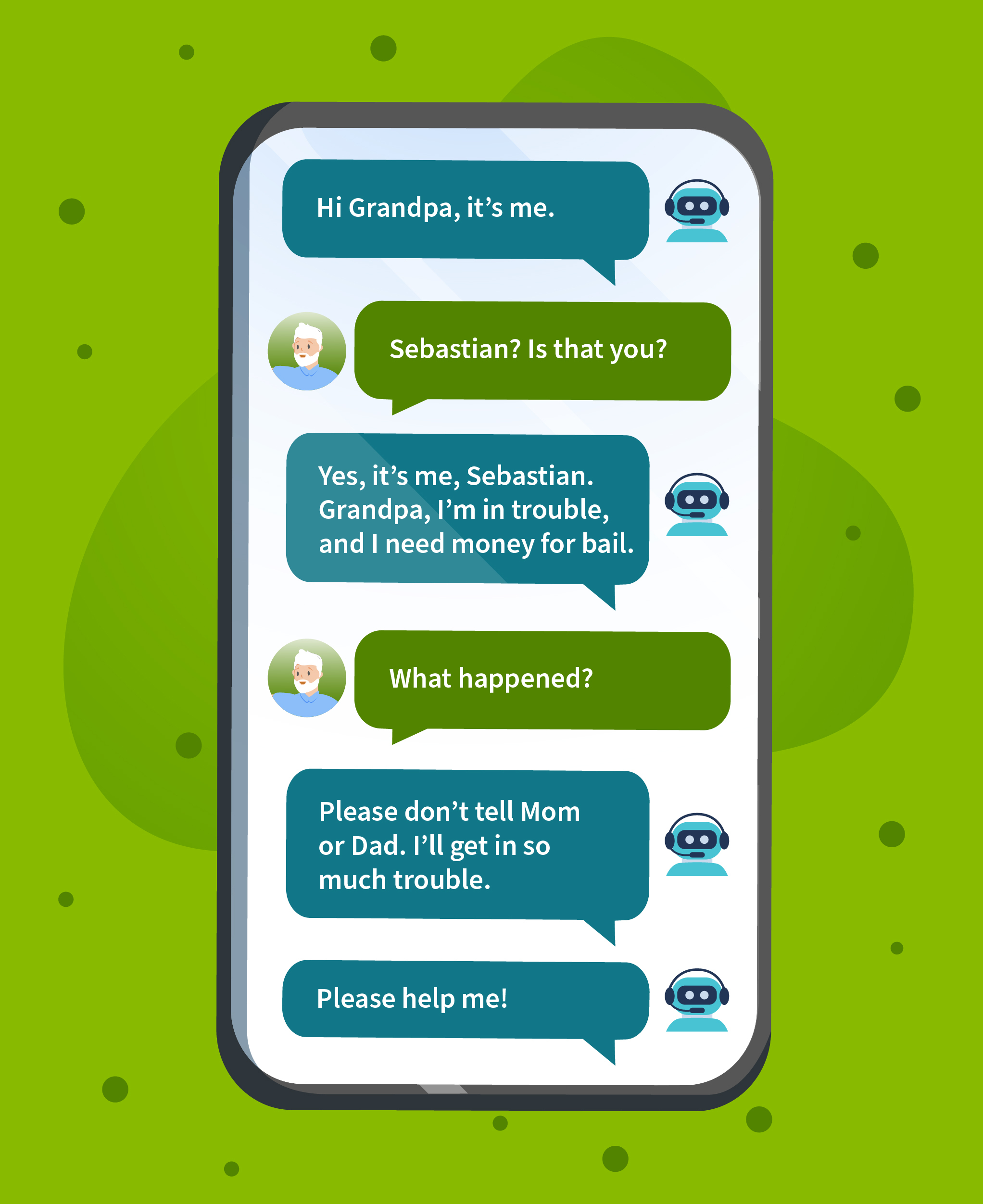The call came from her daughter, or at least a similar number. The voice sounded real, and the plea was unmistakable.
“Mom, I’ve been kidnapped, and I need you to pay the ransom now.”
But it wasn’t real. It was just another example of imposter scams that start with a wrong call. But how could they get the voice? Five seconds are all fraudsters need, with the right technology, to duplicate speech. The daughter whose voice was being spoofed was likely accessed by simply answering a phone call.
“It’s a real thing, and we’re seeing examples every single day,” said Fran Foster, a Regions fraud investigator who spent the bulk of her career in law enforcement focused on fraudulent crimes. “It can start with a phone call out of the blue. You say something, and from that simple interaction, scammers can use artificial intelligence to develop a pattern of your voice, then use their keyboard to create your words in sentences.”
Scammers are using familiar techniques and marrying them with innovative technologies to get your money and personal information. And they use various calamities, including kidnapping, legal trouble, car accidents and financial windfalls, to grab your attention.
Imposter Calls and Fake Profiles
Imposter scams are not limited to spoofing phone calls. Using new technology, they can create social media profiles then message you for help or make a get-rich offer that sounds too good to be true.
Thankfully, in the earlier example given, the mother was on the phone next to her husband. Panicked, she asked him, “What do we do? Our daughter’s been kidnapped.”
His response: “Let’s call her and see if this is really happening.”
“The daughter answered the phone and said she was fine. There was no kidnapping,” Foster said.
Criminals are using old-fashioned techniques to gain access, then using AI to spoof you in realistic ways.Fran Foster, a Regions fraud investigator
But others aren’t as lucky when it comes to imposter scams.
“I was a detective for 28 years,” Foster said. “The last few years, we started seeing an increase in this type of fraud, where people would show up at the bank saying they needed to withdraw money because their child or a family member was in trouble. Criminals are using old-fashioned techniques to gain access, then using the latest technology to spoof you in realistic ways.”
Social media is only making it easier for imposter scammers.
“If you’re a target, they’ll research your information, so they appear to know you well,” Foster added. “Or they can glean information from the dark web. Unfortunately, nearly everyone’s information is out there. This technology can create false identities or documents. They can create what sounds like your voice. They can even do facial recognition to beat the current technology.”

Fight Back Against AI Scams
There is good news: You can fight back with a few simple steps:
- Don’t answer numbers you don’t recognize.
- Don’t rely solely on caller ID because scammers can spoof numbers. Calls can be spoofed to appear they are legitimate numbers, such as a popular business or your bank.
- If you answer, say, “Hello,” just once. If no one answers, immediately block that number.
- Don’t trust the voice on the other end if there’s an urgent request for money, even if it sounds like someone you know.
- If the call is urgent, hang up and contact the person directly. Don’t hit redial – that reconnects you with the scammer.
- If they ask for financial help – by wiring money, sending gift cards and/or sending cash in the mail – don’t do it.
- Immediately travel to your bank branch and report what’s going on.
- Contact law enforcement.
“When misused, what artificial intelligence does is allow the scammer to talk to you in real time,” Foster said. “The scammer can create the conversation by simply typing commands that a computer-created voice mimics. All it takes is for a criminal with access to the dark web to purchase the right program.”
Related Fraud Prevention Articles From Doing More Today:
The information presented is general in nature and should not be considered, legal, accounting or tax advice. Regions reminds its customers that they should be vigilant about fraud and security and that they are responsible for taking action to protect their computer systems. Fraud prevention requires a continuous review of your policies and practices, as the threat evolves daily. There is no guarantee that all fraudulent transactions will be prevented or that related financial losses will not occur. Visit regions.com/STOPFRAUD or speak with your Banker for further information on how you can help prevent fraud.